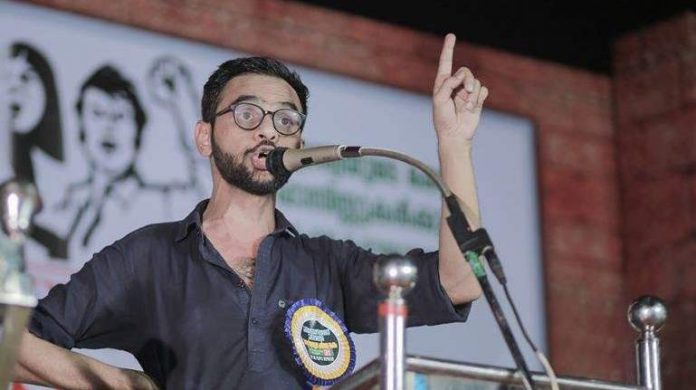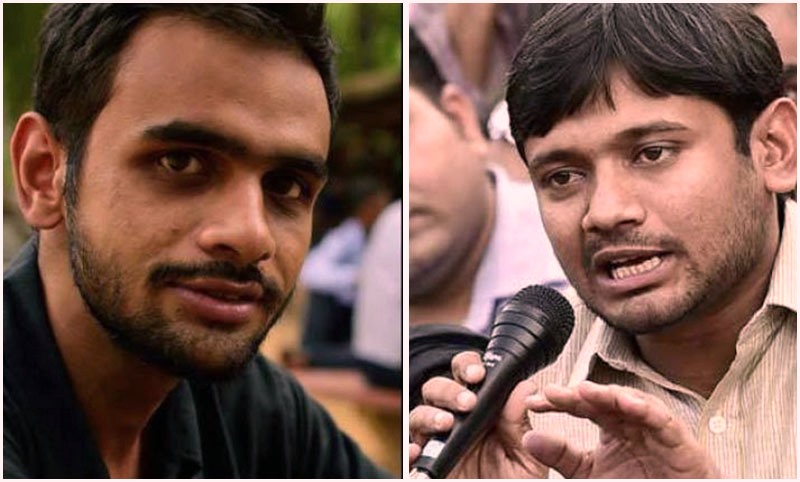As the student activist and former JNU PhD scholar in History Umar Khalid got arrested on Monday by the special cell of Delhi Police for his alleged role in the February 2020 riots in North-East Delhi, it’s safe to say that the apprehension of the protest had already been ticking. He has been charged under the infamous Unlawful Activities (Prevention) Act (UAPA) for conspiring communal violence; for seditious speech and action, and 18 other charges under the Indian Penal Code including those of murder and attempt to murder. Over the past few months, the Delhi Police investigation of the riots has looped in many student activists and Anti-CAA protestors for their alleged role in planning and instigation of riots that claimed 53 lives, leaving 581 injured, damage to property and places of worship (all loss has been found to be borne disproportionately by the muslims). Before this, Khalid’s name had been mentioned in riot-related charge-sheets for having participated in a supposedly secret meeting to foment the Delhi violence, at Shaheen Bagh on January 8th involving fellow accused (and jailed) activist Khalid Saifi, a member of Delhi-based platform United Against Hate and Tahir Hussein, suspended councillor of Aam Aadmi Party. Additional evidence is being claimed to be the available video footage of Khalid where he’s seen addressing a crowd gathered to protest the Citizenship act. He has been accused of inciting the crowd to take to streets against the government which, according to the FIR, resulted in the riots four days later. The interpretation of the speech has become a bone of contention in his trial by the police, the public and the media.
Khalid has been under the public and legal scanner ever since the February 2016 incident at Jawaharlal Nehru University in which he and many other students were targeted under the charge of sedition for raising slogans for Kashmir’s autonomy and for celebrating the martyrdom of 2001 parliament attack convict Afzal Guru. What ensued was a persistent hounding of student activists, intellectuals, professors, protestors who spoke against the ruling government and their vision of the nation and nationalism. As a corollary to the Indian State’s battle against seditious and “anti-national” individuals developed a nationalist brand of journalism, citizenry and police that pursued this cause and the hunt at the State’s behest.
The use of UAPA to arrest dissenters in a whole spectrum of cases from Bhima Koregaon to Anti-CAA has been condemned as draconian and simply an abuse of power. The Act that came to be in 1967 was initially meant to protect India’s security and sovereignty against terror activities, has recently been used by the State to pursue terror cases against lawyers, human right activists, academics, poets, authors who have spoken against state oppression, or state policies and for the cause of civil rights. The use of the act has come to be heavily criticised because it leaves the definitions of terms such as ‘terror activities’ and ‘unlawful acts’ unclear, creating ambiguity around who becomes a convict. The bail provision of the act allows an almost indefinite incarceration of the accused, without conviction or any concrete proof- the handling authority’s version just needs to indicate a terror-related offence was committed.
On Monday, the student leader activist was placed in a 10-day custody of Delhi Police. The FIR alleges that Khalid’s ‘provocative speeches’ during the visit of US president Donald Trump to Delhi in February this year were intended to spread the propaganda at the international level that minorities in India are being tortured. The Delhi court that allowed his police interrogation also raised concern about his safety and directed the Delhi Police to make adequate arrangements for his safety and security during the custody. This follows Khalid’s counsel’s appeal that he had been attacked before. On two or more occasions, Khalid had been attacked- once in 2018 by a gunman outside the Constitution Club in New Delhi and another during a seminar at Delhi University’s Ramjas College in 2017 by ABVP members. Both times he was part of seminars on the themes of freedom and dissent.
Following Monday’s arrest, both hate and support have been pouring in for Khalid who has said that charges against him lack any truth. In the spree of arrests in the case, Khalid had himself been on the giving end of support when his fellow Anti-CAA protestors were charged and jailed under the case. Others who have been arrested under the anti-terror law so far include JNU student Sharjeel Imam, Pinjra Tod members Devangana Kalita and Natasha Narwal, Jamia Millia Islamia students Asif Iqbal, Gulfisha Fatima, Safoora Zargar, Meeran Haider, President of Jamia Alumni Association Shifa-Ur-Rehman former Congress councillor Ishrat Jahan, Tahir Hussein and Khalid Saifi. The Delhi Police’s riots investigation has been denounced for falsifying charges against protestors and being biased towards the role of several leaders from the ruling regime who called for an armed riot if the Anti-CAA protestors did not withdraw their protest. Recently charge sheets have been filed by the Delhi Police against CPM general secretary Sitaram Yechury, Swaraj Abhiyan leader Yogendra Yadav, economist Jayati Ghosh and Delhi University professor Apoorvanand in association with the Delhi riots case.











